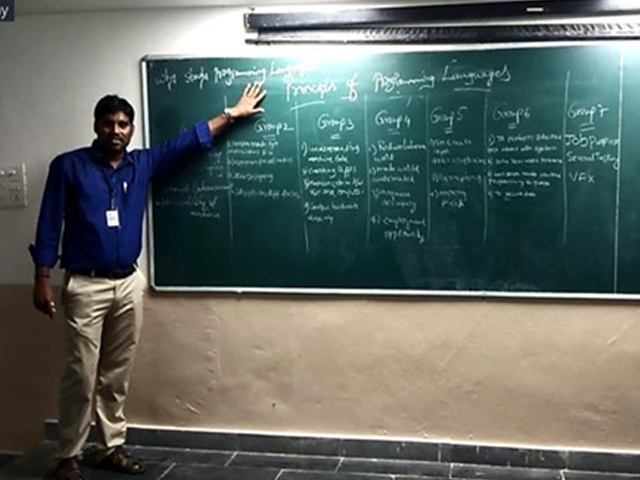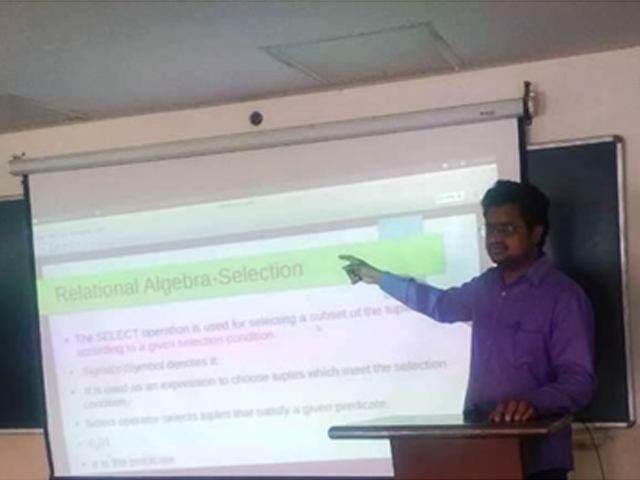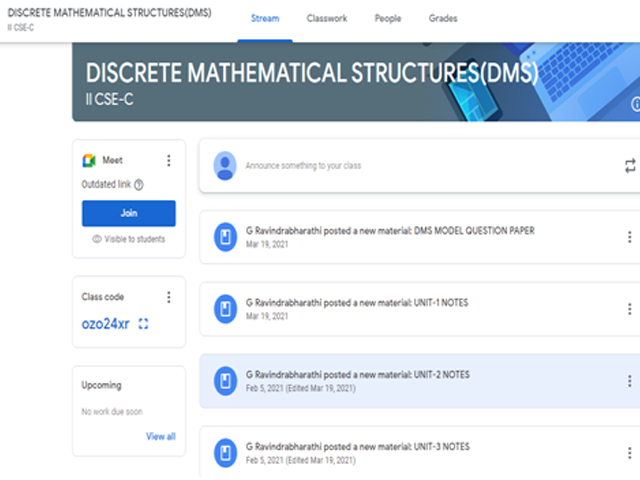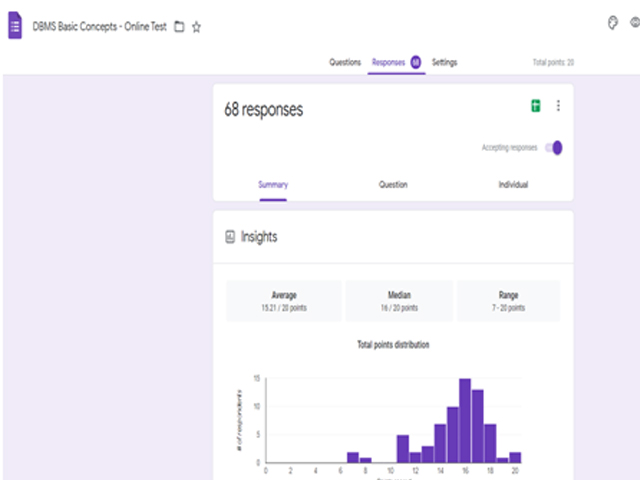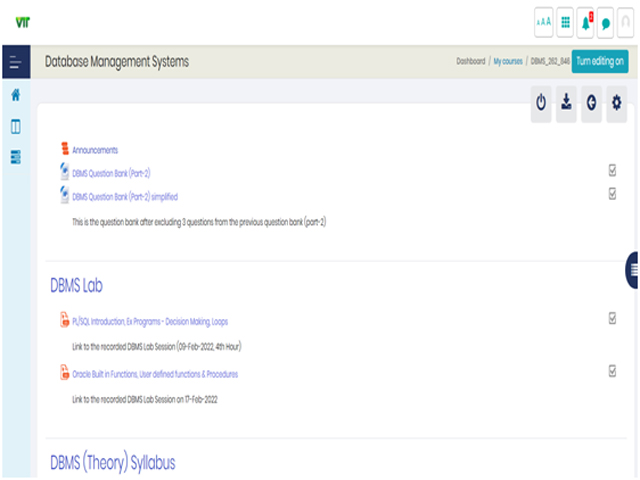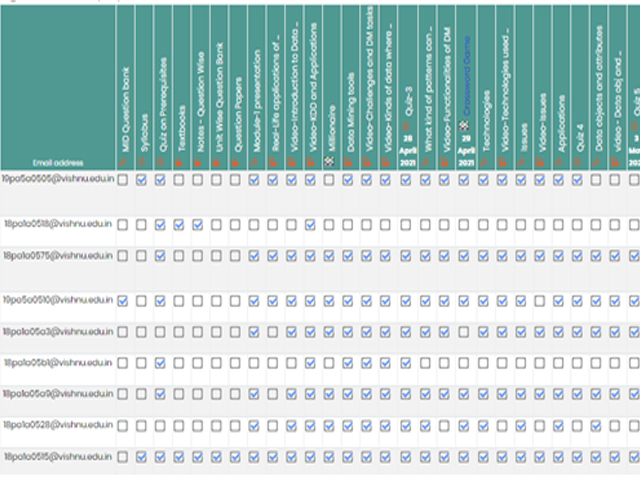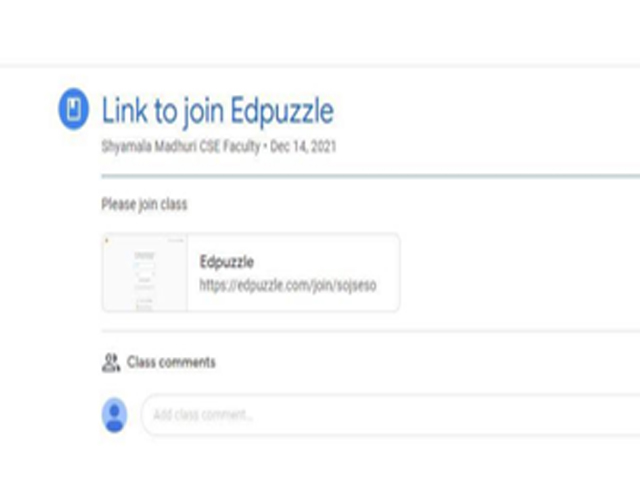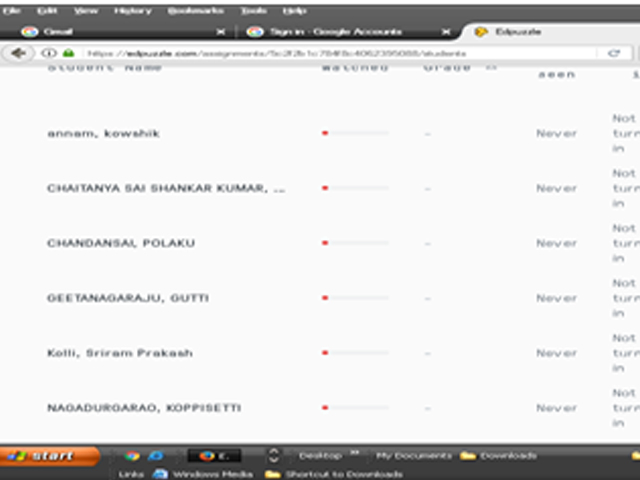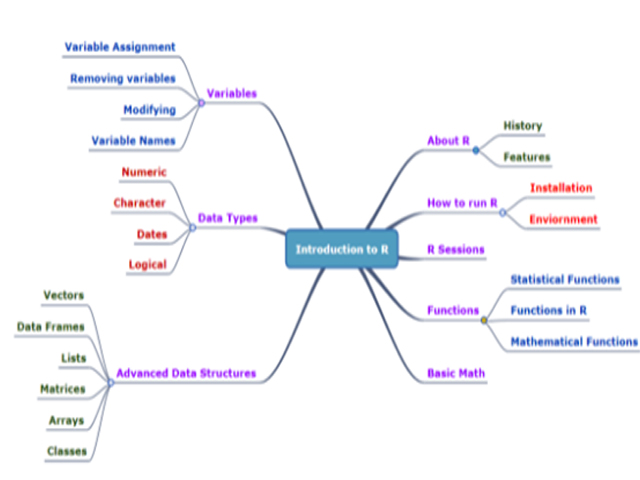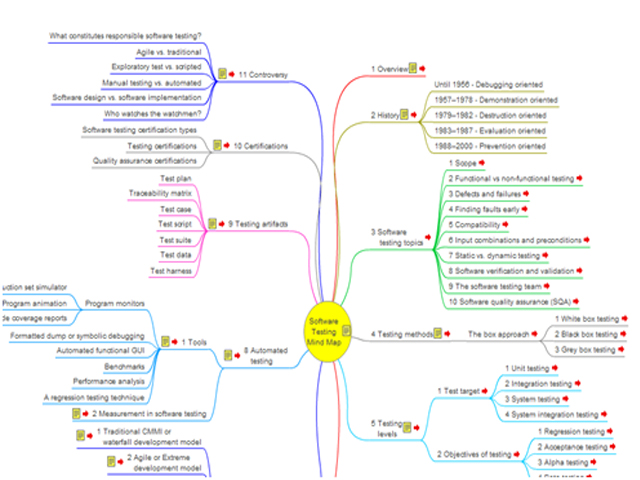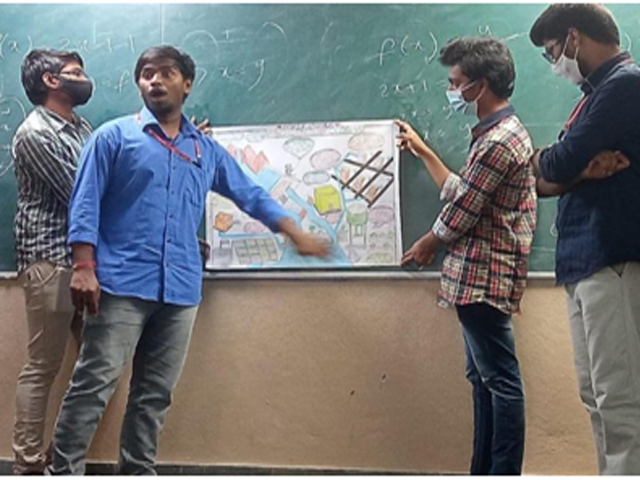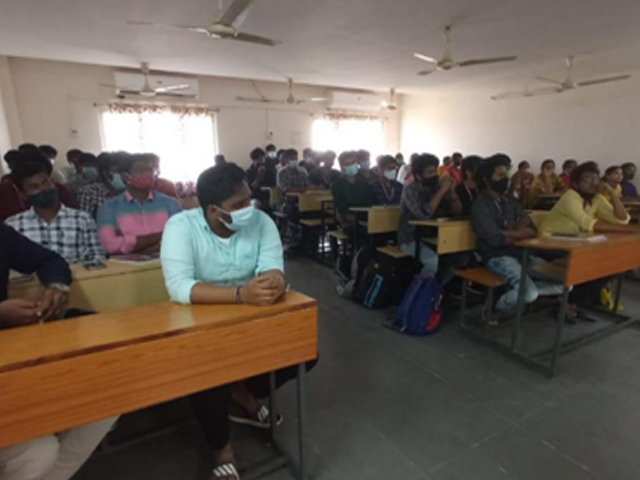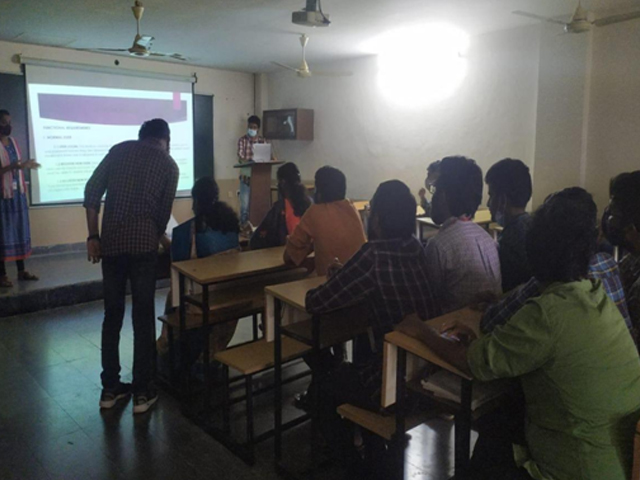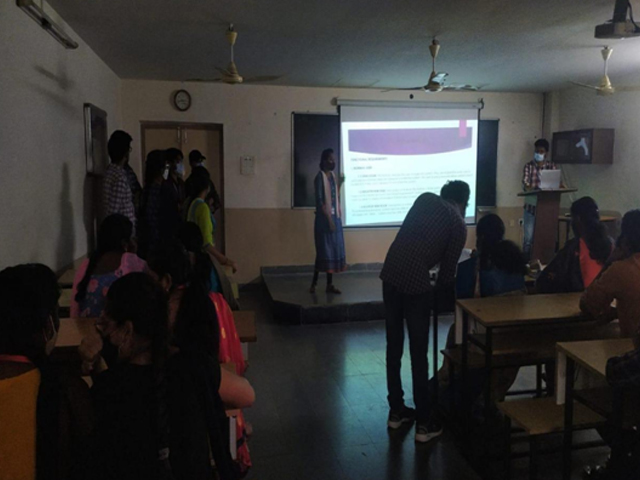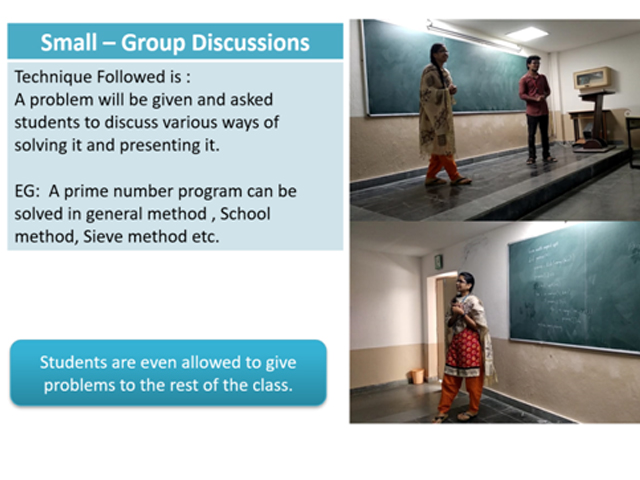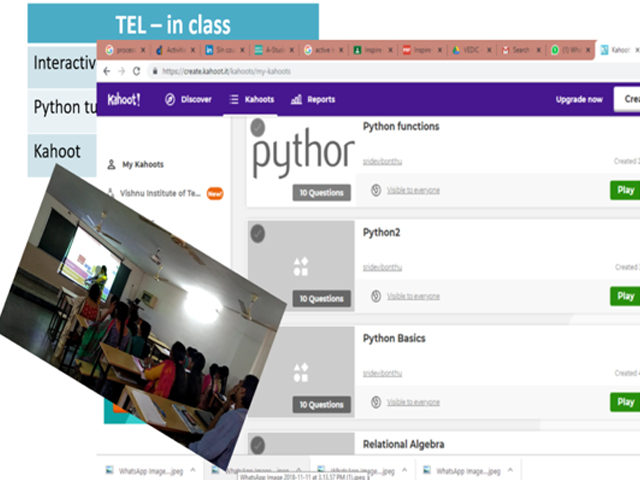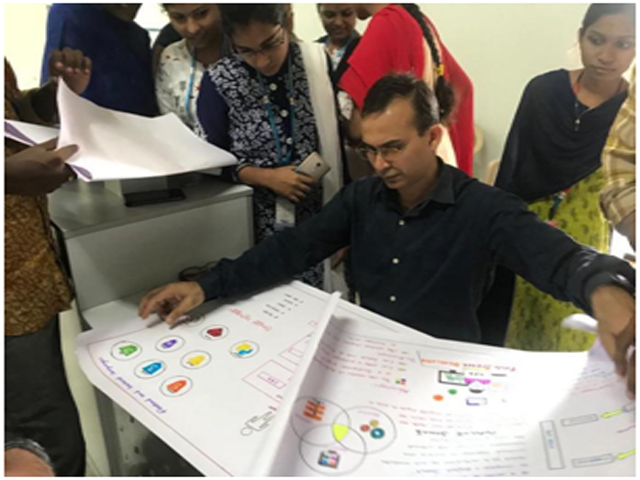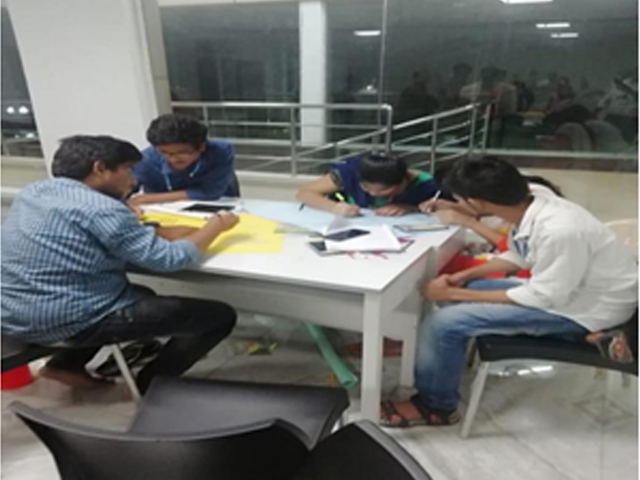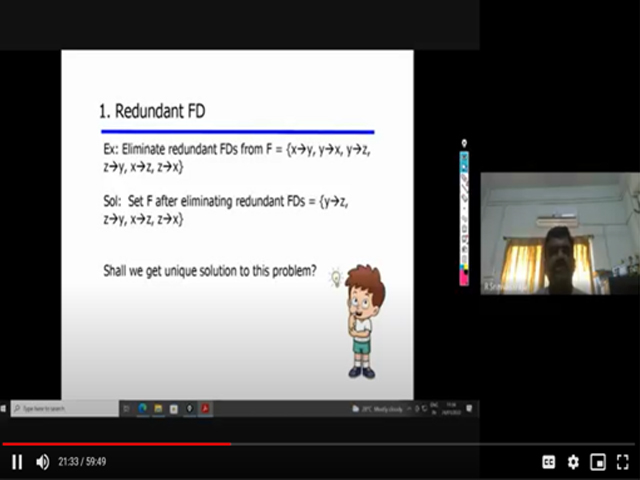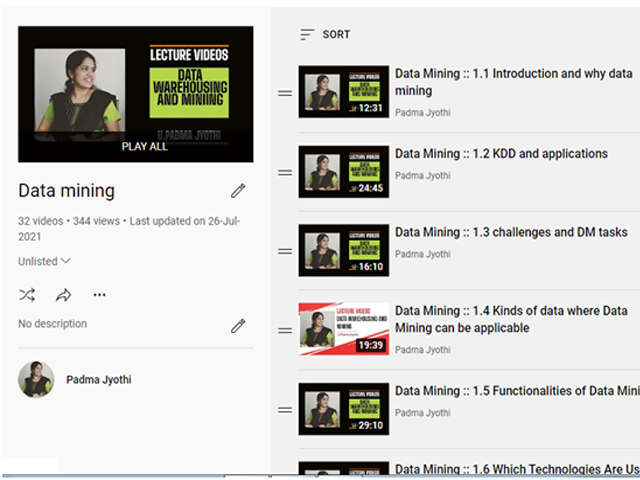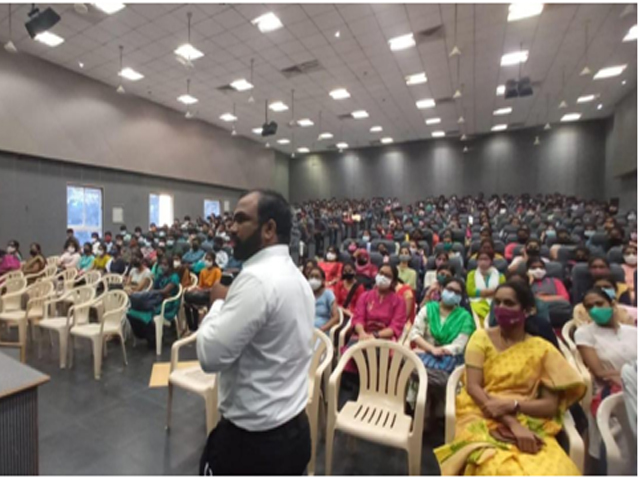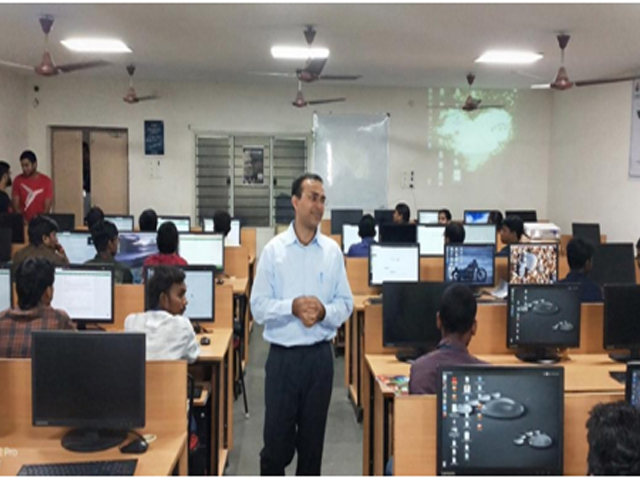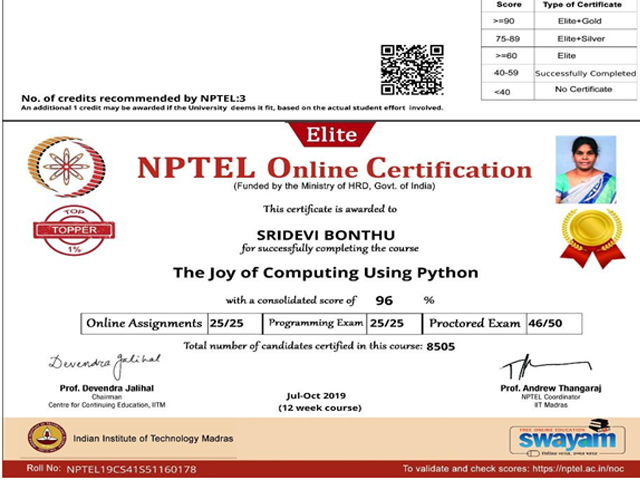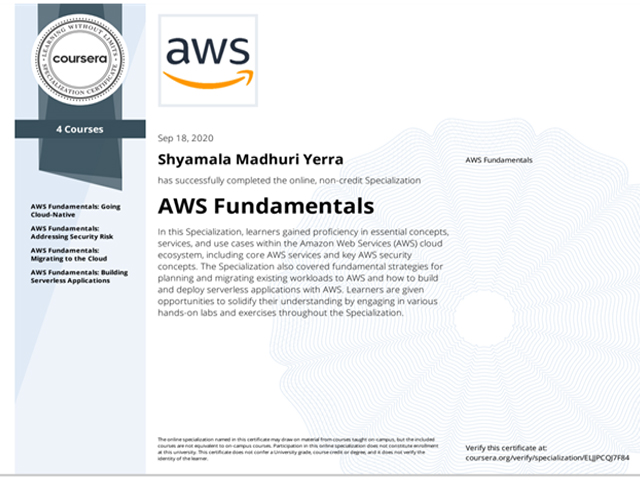Innovations by faculty in Teaching
|
The faculty adopt various innovative methods to improve the teaching learning process. The details of some of the innovative practices used are provided below: |
1. Interactive ClassroomsThe Digital Interactive Classroom is packaged with a robust infrastructure that helps students to stand globally competent with the help of state-of-the-art technology and this set-up includes a giant Interactive The White Board and a Projector, a super-fast desktop or a laptop. Classrooms are equipped with ceiling-mounted projectors and whiteboards for writing notes.
|
||
2. Google classroomGoogle Classroom is an application designed to enhance the learning experience which is in corporate in our teaching-learning process. It helps to interact with students 24 X 7, by posting technical contents, notes, and assignments and also facilitates to conduct and to evaluate online quizzes. The tools offer opportunities for collaboration in real-time and the ability to work remotely.
|
||
3. Vishnu Learning E-Abyas (LMS)Sri Vishnu Learning Management System (LMS) helps institutes to provide online courses as part of their regular course curriculum and also offers complete online distance learning courses. Faculty can provide course materials, PPTs, video lectures, etc. to students. This tool can also be useful for faculty to conduct quizzes, real-time quizzes, games, assignments, etc.
|
||
4. EDpuzzleEdpuzzle is a web-based interactive video and formative assessment tool that allows users to crop existing online videos and add content for target specific learning objectives. Faculty custom search the extensive library of available videos and edit them with voice-overs, embedded assessment questions and when deemed necessary they upload their own videos and additional resources through this application. Faculty also draw from the site's curriculum content, assign due dates and prohibit students from fast forward watching through the video. Faculty view student's scores and progress over time, as well as the length of time students took to complete a given assignment. The usage of the EDpuzzle tool during the class is shown in Figure
|
||
5. MindMapA Mind Map is a diagram for representing tasks, words, concepts, or items linked to and arranged around a central concept or subject using a non-linear graphical layout that allows the user to build an intuitive framework around a central concept. It can turn a long list of monotonous information into a colorful, memorable, and highly organized diagram that works in line with your brain's natural way of doing things. A Mind Map is an easy way to brainstorm thoughts organically without worrying about order and structure. It allows you to visually structure your ideas to help with analysis and recall. The Mind Map used for Data Warehousing and Data Mining class is shown in Figure.
|
||
6. Innovative assignments and Real time problemsAssignments are given based on the real-time engineering problems, to help students to understand and come out with the solutions. Group assignments are also given to improve the self learning and teamwork of students.
|
||
7. Technical PresentationsStudents are encouraged to give presentations on any technical topic in their area of interest which will serve for knowledge transfer and to overcome stage fear. It will also improve their communication skills which is significant in their career growth.
|
||
8. Weekend ActivitiesCo-curricular and extracurricular activities are conducted every weekend to motivate the students and to improve problem-solving capabilities, leadership abilities in multidisciplinary, cooperation in teamwork, consciousness in professional ethics, and administering critical situations. These activities include Webinar, Aptitude Training, Social Welfare Camp, Problem-solving, Entrepreneurship Development Programs, Critical Thinking, Group Discussion, etc
|
||
9. Project-Based LearningThe Department frames its curriculum in such a way that students acquire the skills to design and create complex Electronics systems through various activities including projects. Such projects often force students to use multiple learning techniques to succeed, which includes research, logical deduction, and iterative learning (trial and error). Since these projects are usually too large and complex for one student to do alone, project-based learning also tends to encourage teamwork. Project exhibitions are conducted in the department every year to enrich the project developing skills of the students.
|
||
10. Lecture videosCo-curricular and extracurricular activities are conducted every weekend to motivate the students and to improve problem-solving capabilities, leadership abilities in multidisciplinary, cooperation in teamwork, consciousness in professional ethics, and administering critical situations. These activities include Webinar, Aptitude Training, Social Welfare Camp, Problem-solving, Entrepreneurship Development Programs, Critical Thinking, Group Discussion, etc
|
||
11. Training/WorkshopsTraining and workshop are organized for students to bridge the gap between theoretical learning and practical training in a real-life environment.
|
||
12. Online CoursesFaculty members and students undergo online courses from the sources like Coursera, Edx, NPTEL, Spoken tutorial, etc. in their area of interest. This helps them to enrich their knowledge on current trends and also to equip themselves with inter-domain expertise. They are certified by the National and International universities and are motivated towards lifelong learning. Online courses also provide a forum for discussion among the experts and students worldwide.
|

